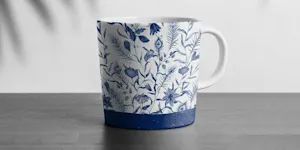What Makes This Word Tick
"Tisane" is a word that carries a bit of herbal mystique, often evoking the image of a steaming cup of fragrant, plant-infused water. It bypasses the caffeine-laden territory occupied by traditional teas and coffee, staking its aromatic claim in the realm of health-conscious sippers and those with a penchant for natural remedies. Whether you're inclined toward chamomile, verbena, or peppermint, 'tisane' gently whispers wellness and relaxation with every quiet syllable.
If Tisane Were a Person…
If tisane were strolling amongst us as a person, it would be the calm, collected sort who always has a tidbit of herbal wisdom at the ready. Picture someone who smiles serenely, never seems stressed, and prefers cozy evenings by the fire with a good book and a warm beverage over any raucous outing. Their ensemble might include a hemp cardigan and a penchant for organic farmers' markets.
How This Word Has Changed Over Time
Historically a term borrowed from the French, 'tisane' has remained relatively unchanged in its core meaning: a calming herbal infusion. Over the years, as wellness trends waxed and waned, this word's aura of gentle health benefits has remained consistent, even as its brethren have evolved into energy drinks and other fads.
Old Sayings and Proverbs That Use Tisane
While tisane hasn't exactly spawned its own proverbs, it finds kinship in old adages that promote well-being. Consider, "A herbal remedy a day keeps the doctor away," which might easily parallel this calming concoction's reputation in folklore as nature's prescription for tranquility.
Surprising Facts About Tisane
Despite its association with fancy tea sets, tisanes aren't truly teas at all, as they lack camellia sinensis leaves. They can be made from almost any plant part—flowers, leaves, seeds, or roots. A tisane doesn't need to be brewed hot; many enjoy it as a refreshing cold infusion in the warmer months.
Out and About With This Word
Ever spotted 'tisane' on a menu at your favorite café? More establishments are featuring this caffeine-free delight as part of their holistic beverage offerings. It gives an establishment a flair for sophistication and an alignment with wholesome living that's hard to resist.
Pop Culture Moments Where Tisane Was Used
While tisane might not frequently hog the spotlight, look closely, and you'll find it in period dramas and novels, where a character might sip a calming cup as a prelude to a night of reflection—or intrigue!
The Word in Literature
In literature, 'tisane' often emerges in works highlighting domestic bliss or introspective moments. It offers an alternative to the more charged, dramatic connotations of coffee and can serve as a thematic symbol for peace or pastoral life in both classic and contemporary novels.
Moments in History with Tisane
What moment in history hadn’t been improved by a calming tisane? Imagine, if you will, Marie Antoinette pausing from her royal duties to indulge in a quiet cup of chamomile to soothe her troubled mind. Tisane fits naturally into any historical setting where individuals sought calm amid chaos.
This Word Around the World
The concept of tisane transcends regions, with similar infusions appearing globally: 'Agua de Jamaica' in Mexico, 'rooibos' from South Africa, and 'matricaria' in Italy. Each culture brings its own flavors of wellbeing to the shared table of herbal harmony.
Where Does It Come From?
The word 'tisane' draws its roots from the Greek word 'ptisane,' which described a barley water drink. Over time, the French adapted this term to describe the broader category of herbal infusions, largely separate from the conventional world of tea.
How People Misuse This Word
Though 'tisane' might be misused as a synonym for any hot beverage, it's specifically reserved for herbal infusions. It's easy to confuse with traditional tea, but remember—it's not tea if it doesn't involve tea leaves.
Words It’s Often Confused With
Tea: Traditional tea is made from tea leaves, whereas tisane uses herbs, flowers, and fruits.
Infusion: While tisane is a type of infusion, not all infusions qualify as tisane.
Decoction: This involves boiling substances like bark or roots, differing from the steeping method typical of tisanes.
Additional Synonyms and Antonyms
For other names, consider 'herbal tea' and 'herbal infusion.' Though these aren't exact synonyms, they share context. There's no true antonym, but 'coffee' could serve as the caffeinated contrast.
Want to Try It Out in a Sentence?
As the rain pattered gently on the roof, she sipped her lavender tisane, feeling the day's tension dissolve with each fragrant breath.
















